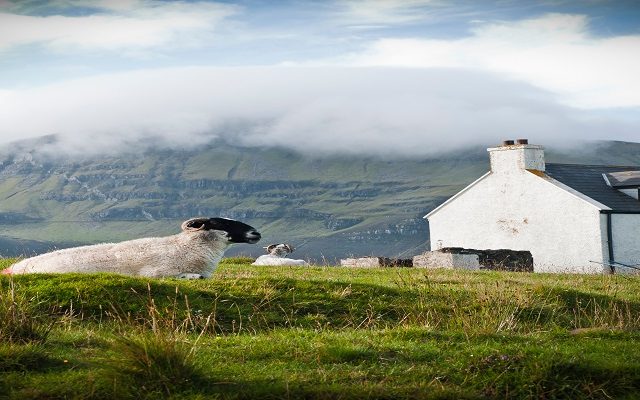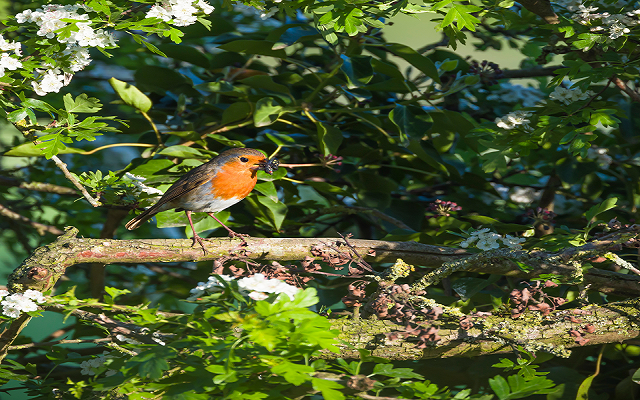Land Business Update 19th April 2021
Welcome to our update on key land management, farming, planning and energy issues.
FARMING
Sign up for Farmer Time – the initiative that links farms to schools via digital channels
This campaign, which has been very successful since it started in 2017, has already matched over 600 schools and farms, reaching nearly 16,000 children. As well as being valuable for the children, 100% of the farmers who took part in 2020 said they enjoyed the experience and 96% are going to do it again. It could also be a good way to encourage new entrants into the sector as 71% said they spoke to children about careers in farming. If you would like to take part in this free initiative, register your interest here. Strutt & Parker is delighted to be a supporter of Farmer Time.
Brexit continues to affect food exports says Food and Drink Federation
The FDF says that businesses that export are continuing to experience difficulties, due to the bureaucracy and lateness of the change from 1st January onwards. Exports were down by 60% for most businesses and 75-95% in some, with some markets lost completely. It says that it is not yet clear whether the exporters have been able to find new markets. The FDF says that the main challenge is that time is needed to put the new infrastructure required, such as customs agents, in place. The number of customs declarations has quadrupled and the amount of time that each one takes for food products to complete has tripled. A cross-party independent commission has been set up to try to improve exports and the implementation of the Trade and Cooperation Agreement. It is being run by the Best of Britain group. Separately, exports of Scottish salmon to Europe are at roughly the same level as in 2020; government data suggests that exports have slumped but that is being disputed by the industry.
Pick for Britain scheme scrapped after one year
The scheme is estimated to have provided only 5-11% of workers needed in 2020. Instead, the NFU is encouraging farmers to contact the Department for Work and Pensions (DWP) directly, who can put them in contact with job seekers. The NFU acknowledges that it does not know how many workers this will produce. The Seasonal Agricultural Workers pilot scheme is continuing and will allow 30,000 workers into the UK; while a large number it is less than half the number required.
ECONOMY
UK settled or pre-settled status deadline is 30th June 2021
Settled status allows an EU citizen who has been in the UK for more than five years to remain in the UK and potentially apply to become a UK citizen shortly afterwards. Pre-settled status applies to people with less than five years’ residency. It is worth checking with all staff (to avoid potential discrimination) whether they have the status they need before the deadline, as the right is lost if they do not apply in time.
Have your say on rural business resilience during COVID
The survey, on how small firms in rural areas manage crises and how they recover, is being carried out by the National Innovation Centre for Rural Enterprise (NICRE). It is open to rural and farming businesses in the North East, South West and Midlands. NICRE wants to speak to more than 4,000 businesses to shed light on this area. Strutt & Parker is delighted to be a founding commercial partner of NICRE. Please contact Professor Stephen Roper if you would like to take part.
ENVIRONMENT
Natural England carbon report
Natural England has published a fascinating report that assesses how managed and natural land uses contribute to carbon storage and sequestration. Unsurprisingly, it found that peatland can store the most but other habitats like saltmarsh are also important. It shows how restoring these habitats can help the country reach its climate change targets. Valuably, the report acknowledges that data on the rate of storage of carbon by different habitats is patchy; it is better for woodlands and peatlands but less good for grasslands, so these evidence gaps need to be filled. The report highlights the impact of growing arable crops on peatland soils, which a Natural England spokesman said was challenging as lowland is highly productive and there is no simple solution for these areas yet.
Rodenticide residues found in two-thirds of barn owls
Two-thirds of barn owls analysed by the Campaign for Responsible Rodenticide Use were found to have detectable liver residues of two or more second generation anticoagulant rodenticides (SGARs). For the first time in the four years the survey has run, one owl was identified in which exposure to rodenticides was a possible contributor to the cause of death. Users of rodenticides are being urged to follow product label instructions diligently. Sadly, many of the other owls examined had died from either road traffic trauma or starvation. The CCRU has produced a useful guide to safe use of rodenticides.
Nature Networks Fund provides £9.8m for biodiversity in Wales
The Fund, which is part of the Heritage Fund, will provide grants of £50,000 – £500,000 to projects that improve the condition and connectivity of Wales’ network of protected land and marine sites. More information is available here. Applications can be made now and close on 30th April (for expressions of interest up to £500,000) and 24th May (for applications for £50,000–£100,000).
FORESTRY
Woodland Trust’s State of the UK’s woods and trees report warns about poor condition of existing woodlands
This is the Trust’s first ‘State of’ report. It says that although woodland cover is gradually increasing, woodland wildlife is decreasing. Just 7% of native woodlands are categorised as in good ecological condition and climate change, lack of planting and pest and diseases are making it worse. The Trust is calling on the government to set legally binding targets for woodland protection, and warns against just focussing on planting new trees. On many farms, woodlands are the most valuable habitat but are one of the least and most poorly managed. Please call Matthew Bennison if you would like to discuss woodland management.
PLANNING
New permitted development rights create new opportunities for property owners
The new rights allow the change of use from commercial, business use and service use (Class E) to residential use (Class C3). It follows the changes to use classes in September 2020, when a new Class E definition was introduced to cover a wide range of uses. The new Class MA rights will take effect from 1st August 2021, with existing use classes applying until then. Unlike other permitted development for residential use, these new rights apply to buildings in conservation areas. Please contact your local office or planning team for further details.
TELECOMS
Taller 30 metre telecoms mast consultation
The government is consulting on whether to allow existing masts to be increased to up to 30 metres height (and 25m in protected areas) under permitted development rights, to improve mobile connectivity and speed up the introduction of 5G networks. It hopes it will reduce the need for as many new masts. As ever the devil will be in the detail. Existing sites are governed by existing contracts which may or may not limit the height of the structure; if the height or design is limited then a renegotiation will be required. Perhaps a greater issue is trying to get operators to put up masts in rural communities, as the cost outweighs the benefit to the operator in many instances. Please contact Paul Williams if you would like to discuss anything about telecoms.






